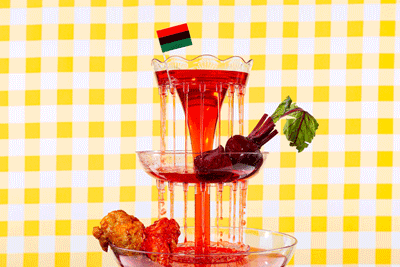
)
Red-hued foods are a powerful Juneteenth symbol. 14 places to find them in L.A.
- Share via
My mother reminded me recently of a family trip we took to Allensworth, Calif., the state’s only Black-founded town (less than a two-hour drive from Los Angeles), for its annual Juneteenth festival.
“The whole family went!” she insisted, trying to spark a memory. “We rented a van, we had matching T-shirts.”
Finally, a hazy snapshot emerged: a vast golden field, my extended family spread out around picnic tables, laughing, talking, playing games and eating with other festivalgoers. Aside from the recognizably dry and flat lands of California’s Central Valley, the scene was interchangeable with family reunions, holidays and even summer trips to visit my great-grandmother in Jackson, Miss.
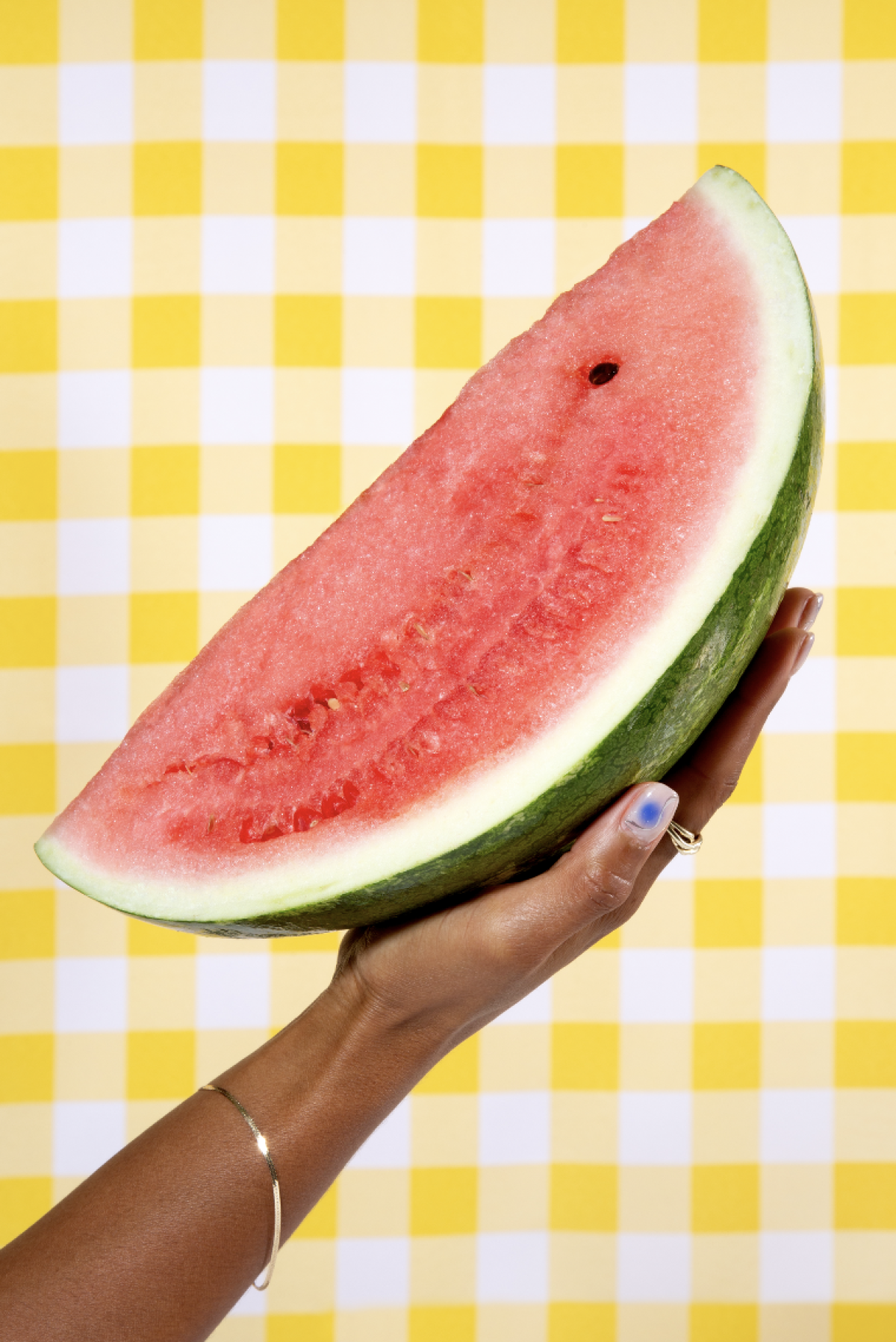
“Homecoming, church picnics, fish fries — they all share the same music, food and cadence as Juneteenth,” explained Nicole Taylor, author of “Watermelon and Red Birds: A Cookbook for Juneteenth and Black Celebrations,” the first Juneteenth cookbook released by a major publishing house.
The holiday marks June 19, 1865, when Maj. Gen. Gordon Granger arrived in Galveston, Texas, to inform all enslaved people within the state — estimated to be 25,000 — that they had been freed by President Lincoln’s Emancipation Proclamation, nearly 2½ years after the order was given.
The first Juneteenth celebrations were recorded in the state of Texas in 1866, with descriptions of family and church gatherings featuring tablescapes of vibrant summer fruits, fried fish and chicken and poundcake. In the years to follow, festivities spread throughout Southern states and eventually made their way to the Midwest and both coasts.
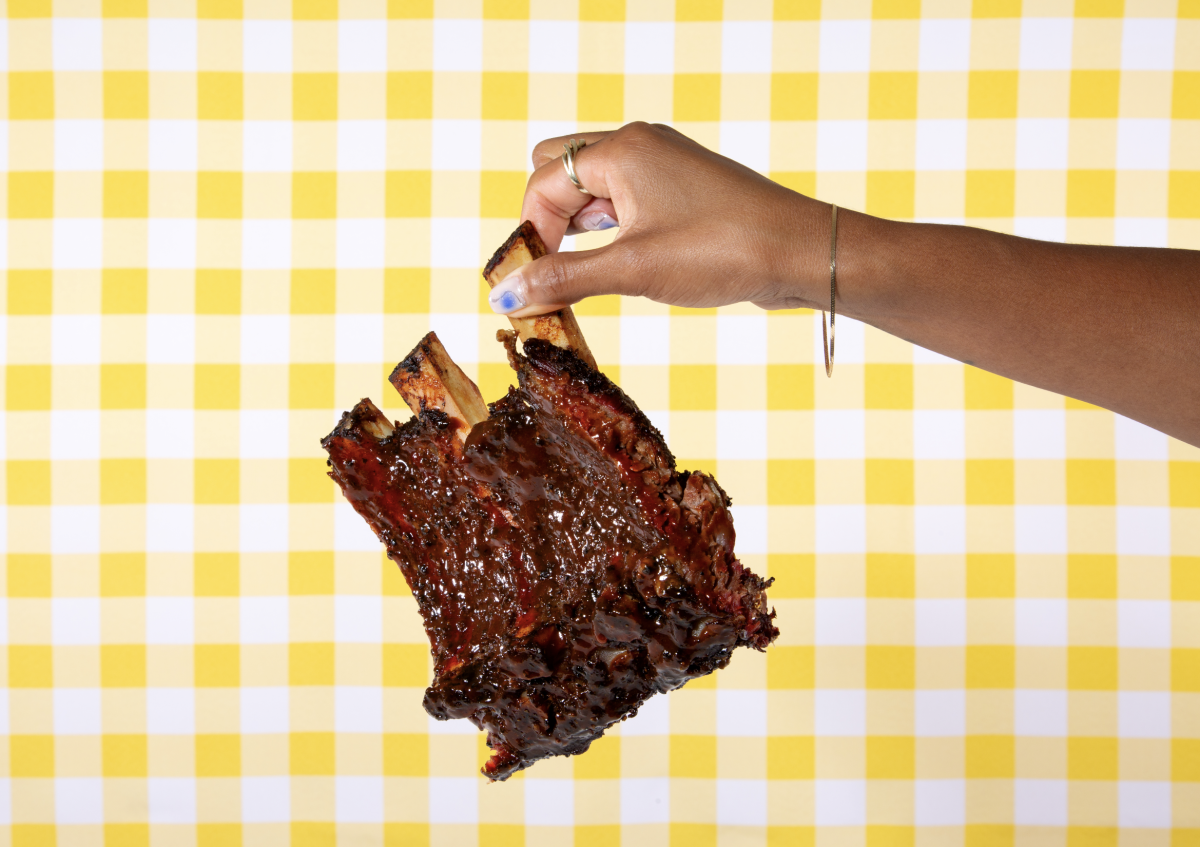
Though the holiday has been celebrated for more than 150 years, it wasn’t until 2021 that Juneteenth became a federal holiday. As the history becomes more widely known, treasured traditions have resurfaced, including the consumption of red-colored foods including watermelon, barbecued meats and strawberry cake.
There are different ideas around the significance of eating red foods on Juneteenth. Some believe that early celebrants simply worked with easily accessible and in-season ingredients that happened to be red: watermelon, strawberries, beans and fried or smoked meats. Others say that it honors the bloodshed and suffering of enslaved ancestors.
For Taylor, “I like to go into my experience around the color red and being a Black woman raised in the American South. Growing up, the pews in my church were red. All of the women that I admired, they were members of Delta Sigma Theta sorority, and their color was red. There was so much red around me, and it always meant power. It always meant royalty and celebration. Even going back to West Africa, the transatlantic slave trade brought the ritual of drinking sorrel, or what some people would call hibiscus. For Black people across the diaspora, that ritual has been with us forever. It’s inside of us.”
But modern Juneteenth spreads can be adaptive and interpretive.
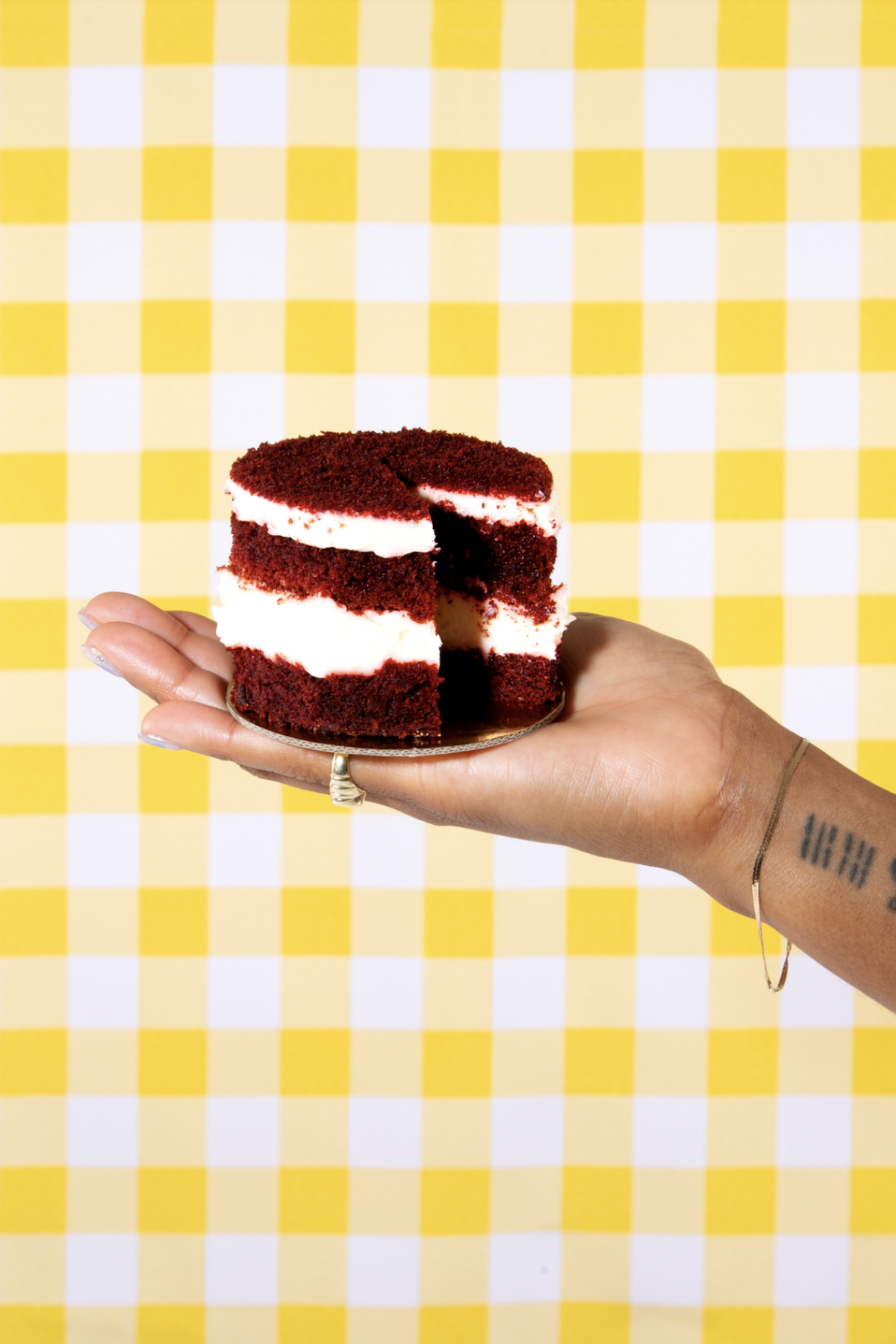
There are plenty of places to purchase red foods, but in the spirit of Juneteenth, endeavor to visit some of L.A.’s Black-owned restaurants and markets — and don’t just limit that support to one day. Juneteenth falls on a Wednesday this year, but the essence of its celebrations reverberates through any gathering that’s centered in joy, community and liberation.
“Anytime you’re intentional about not working, about turning your phone off and playing music — you’re bringing the Juneteenth spirit,” Taylor said.
Here are 14 Black-owned restaurants and markets across L.A. to get red foods and drinks — spanning fruit punch, fried chicken, red velvet cake and more — for Juneteenth and all year long.

1010 Wine
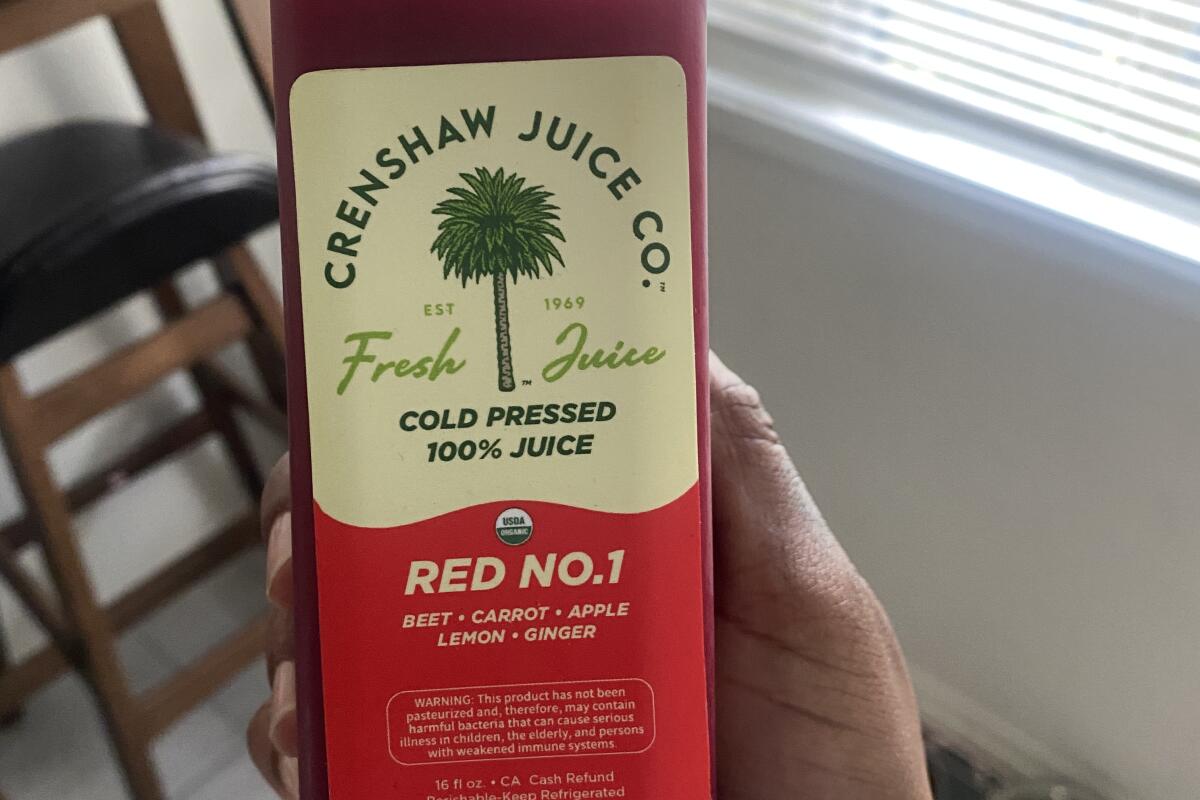
Crenshaw Juice Co.
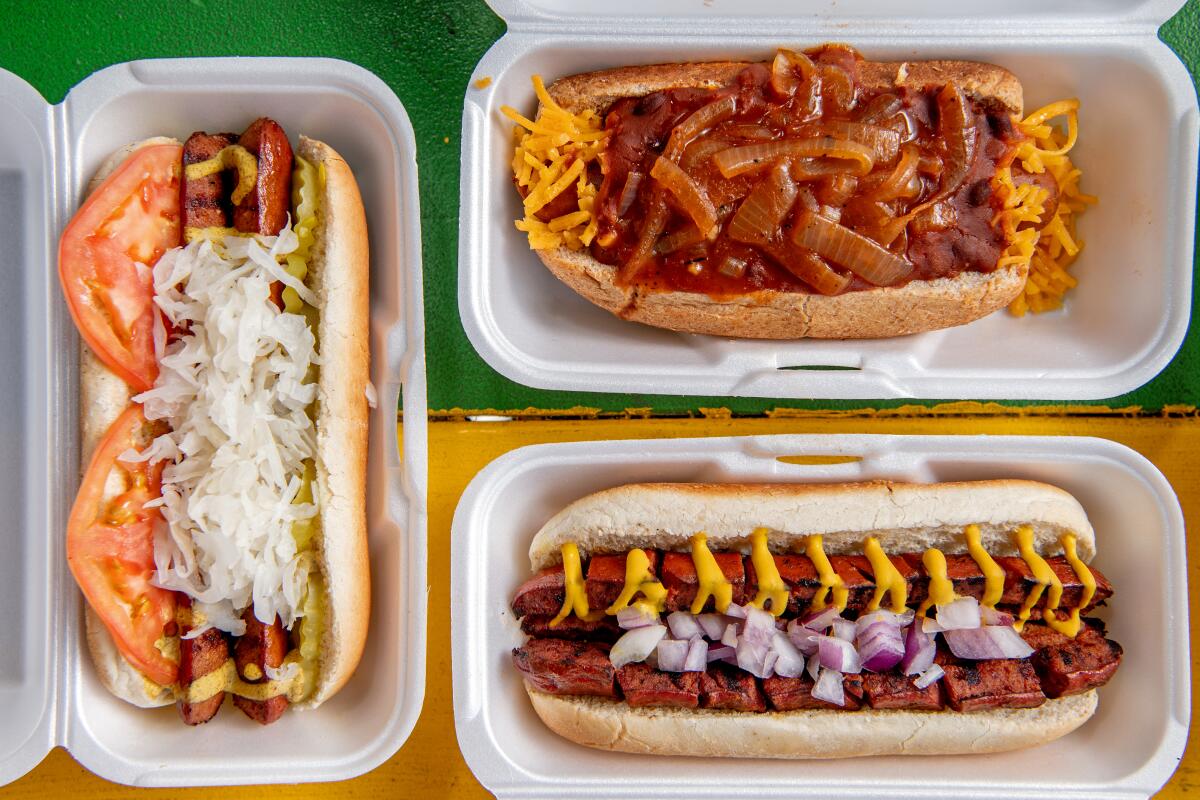
Earle's on Crenshaw
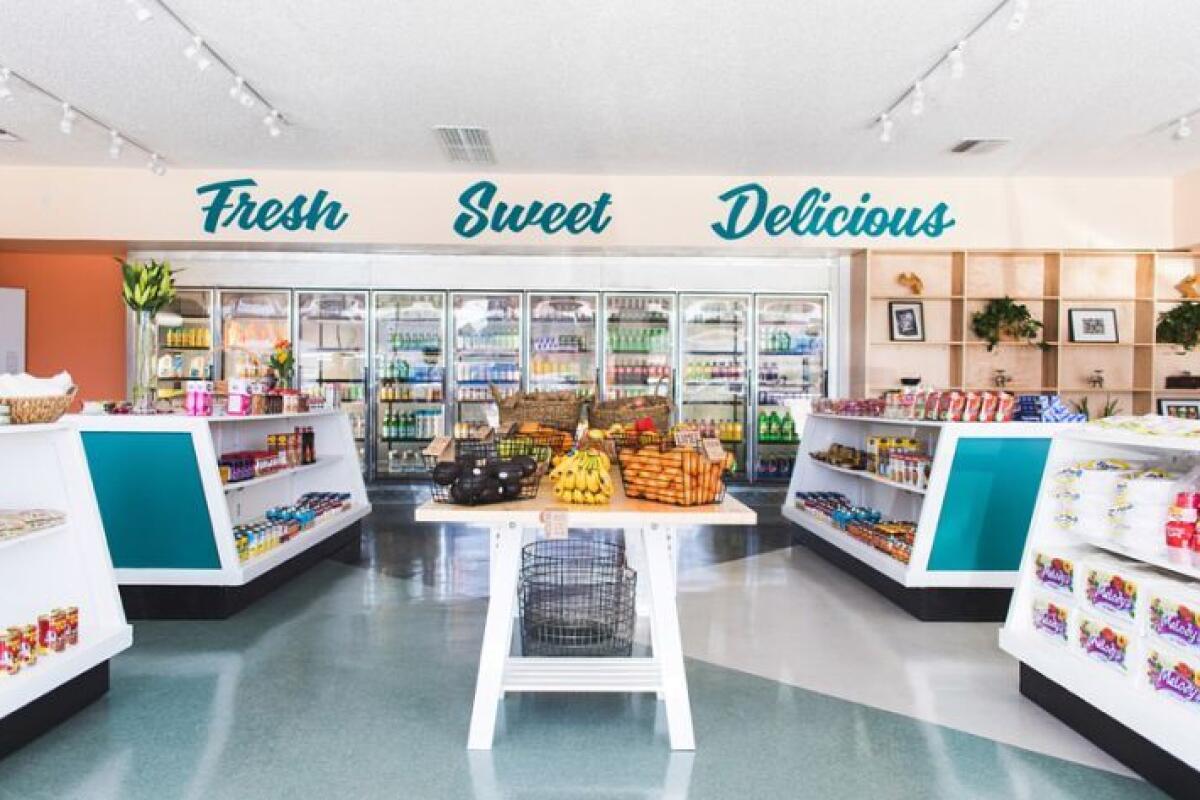
Hank's Mini Market
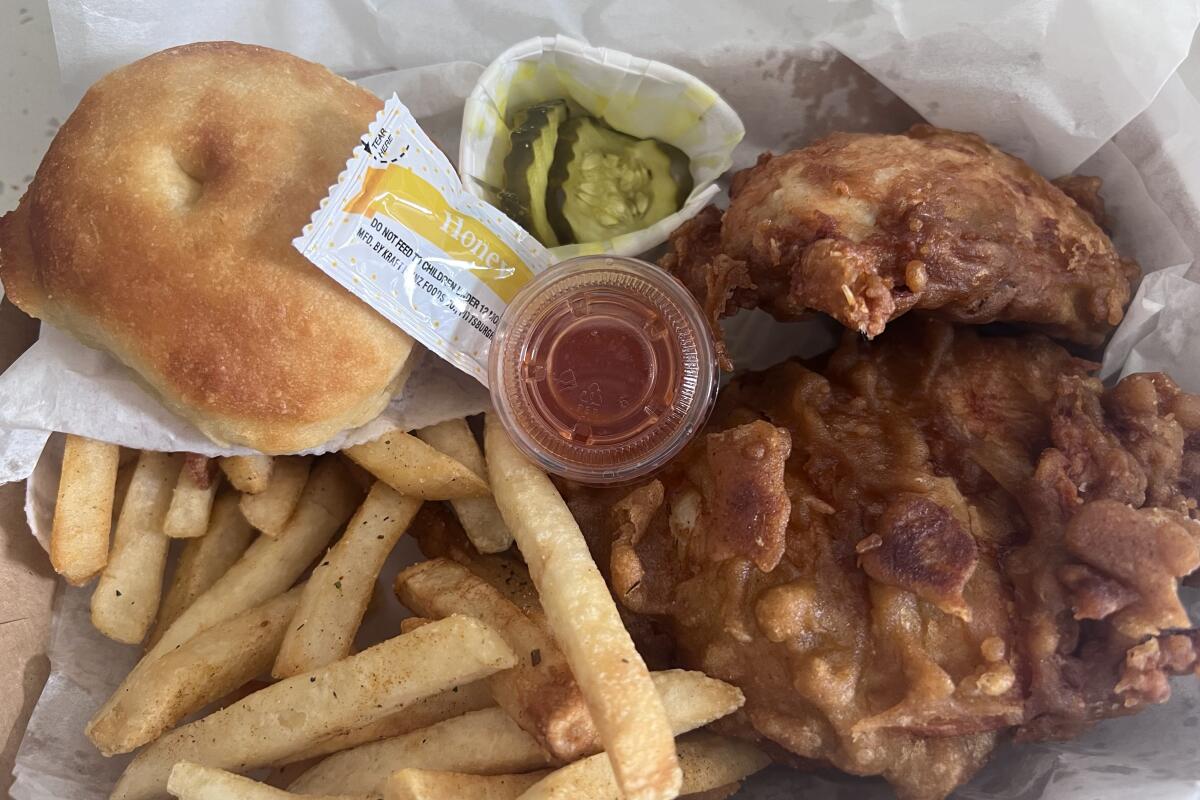
Honey's Kettle
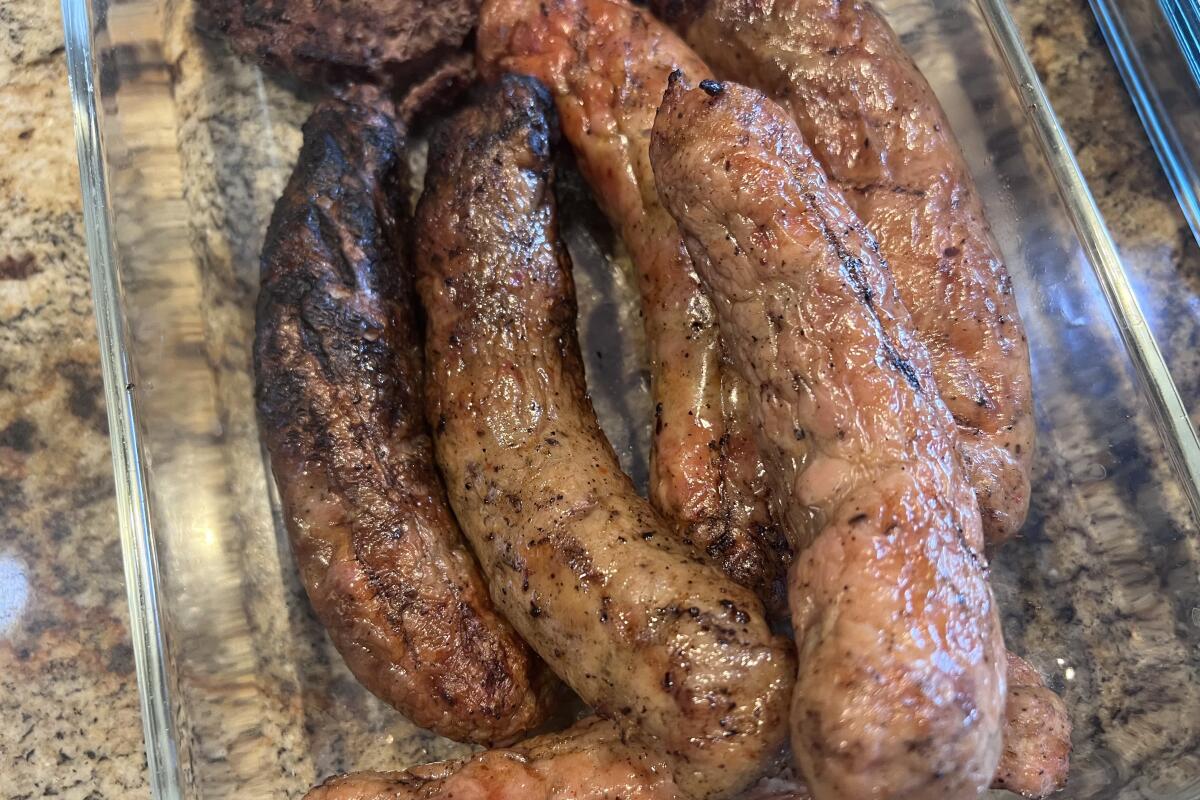
Mama's Chicken and Market
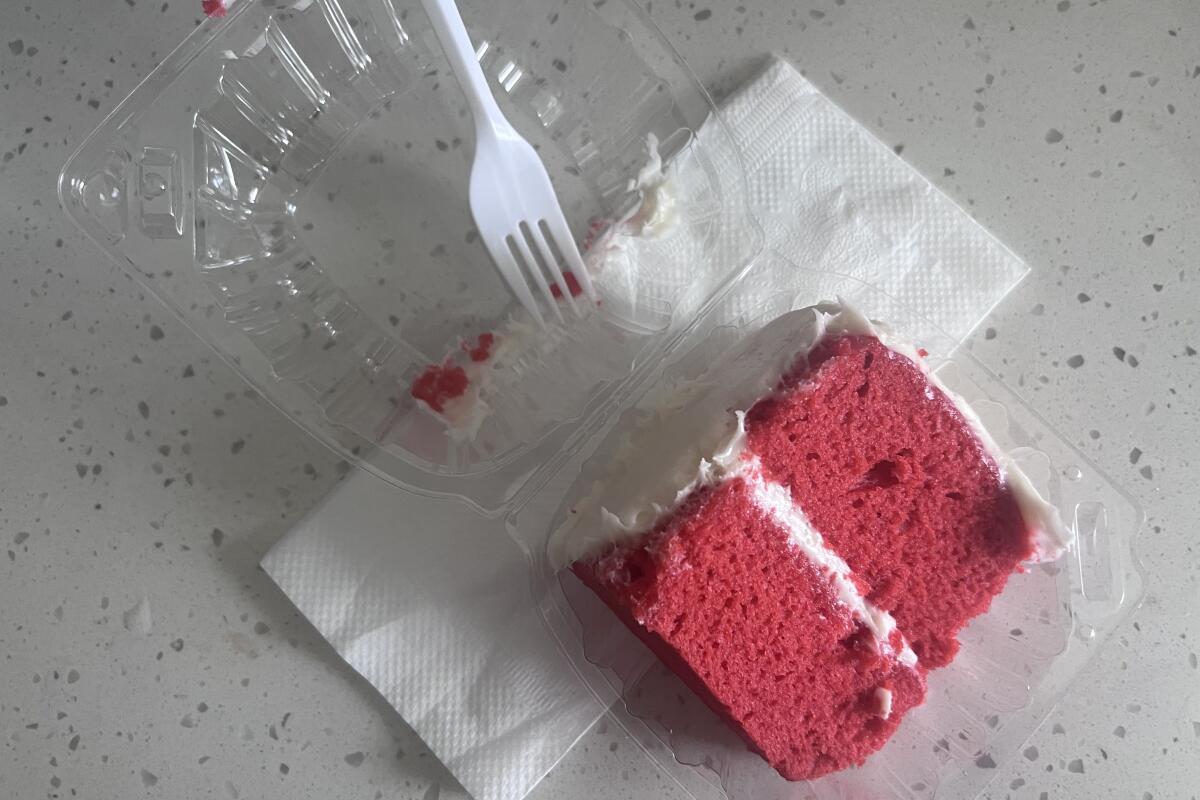
Ms Ruby's Bakery
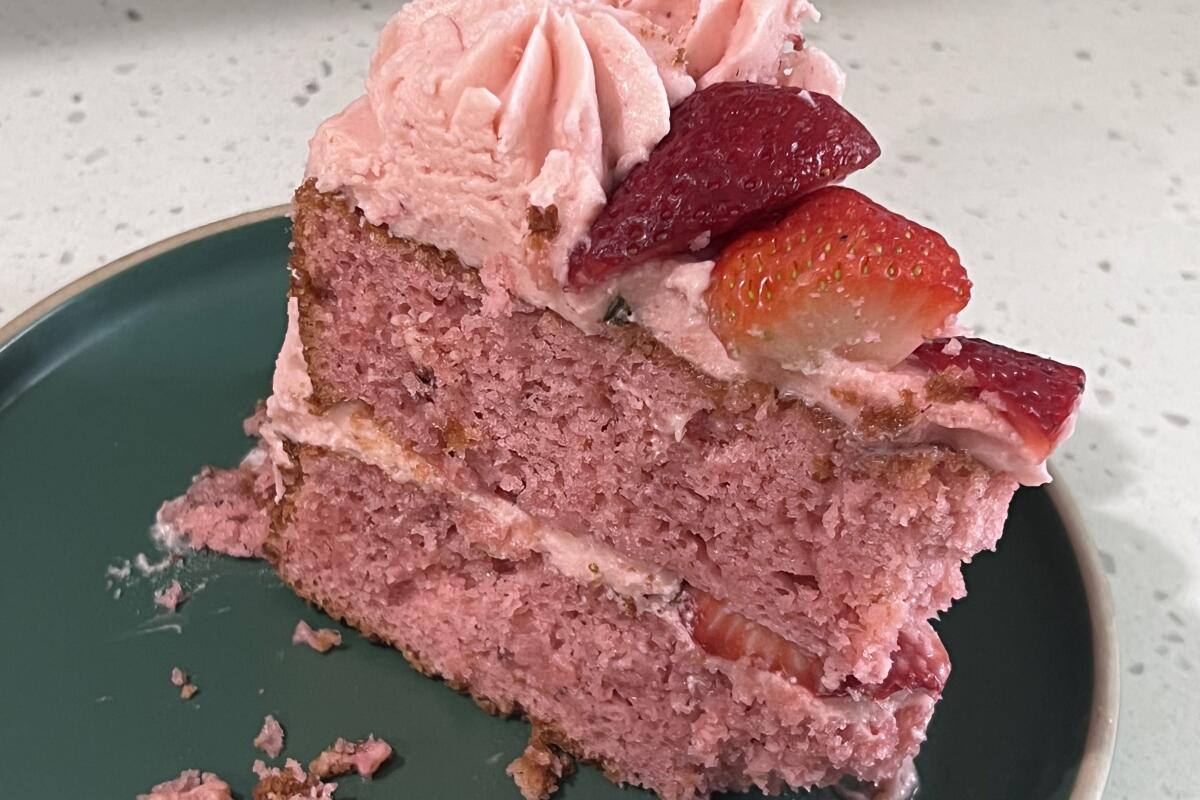
My 2 Cents
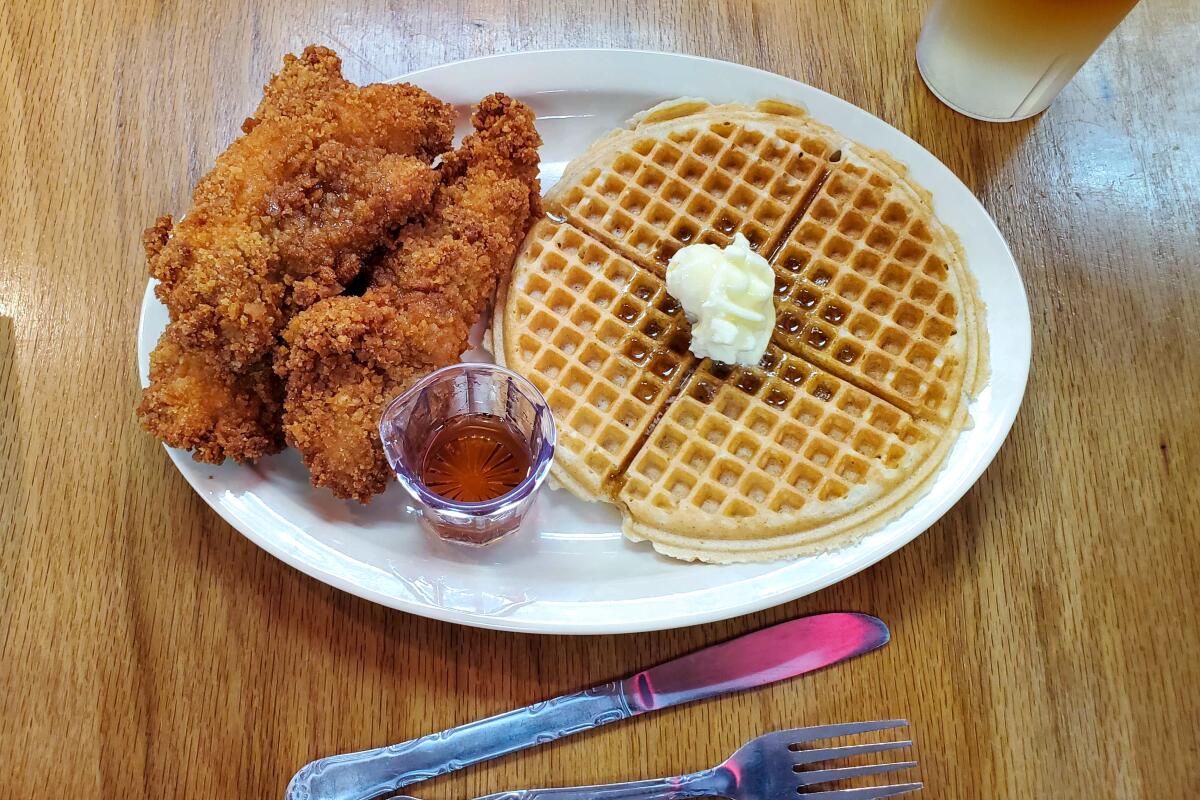
Roscoe's House of Chicken 'N Waffles
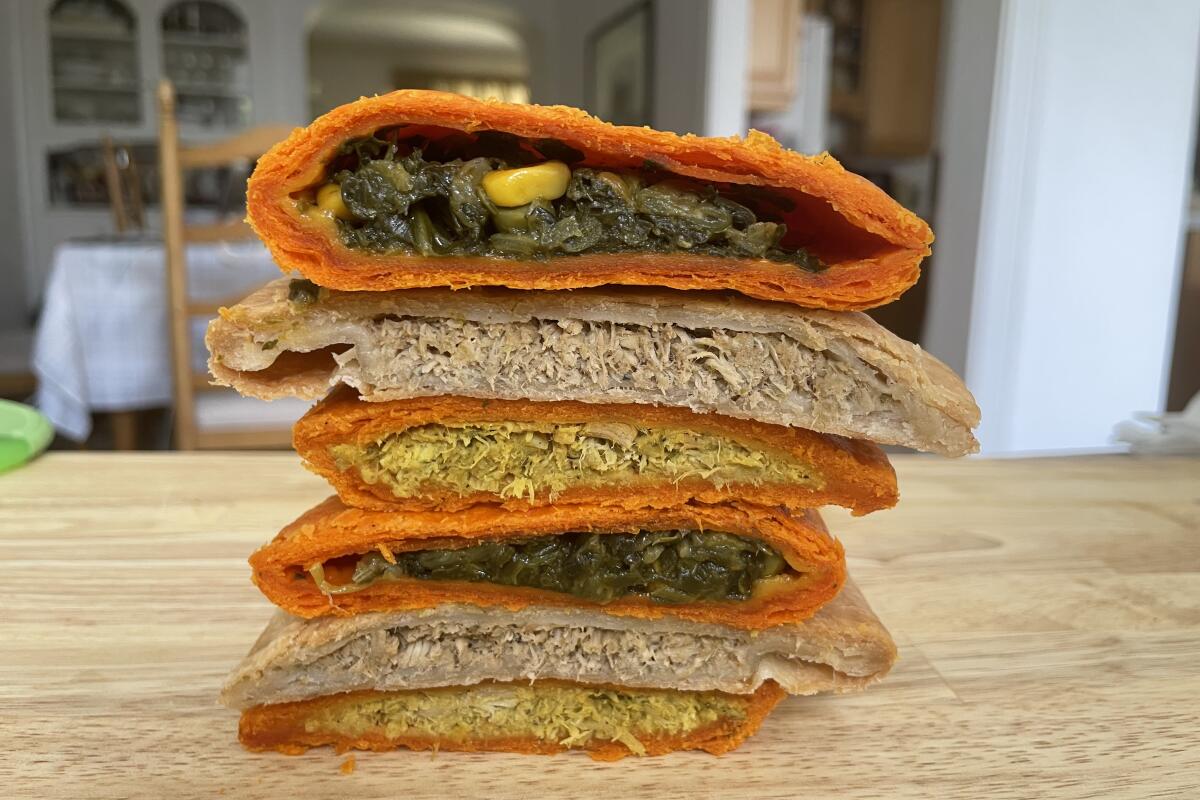
Simply Wholesome
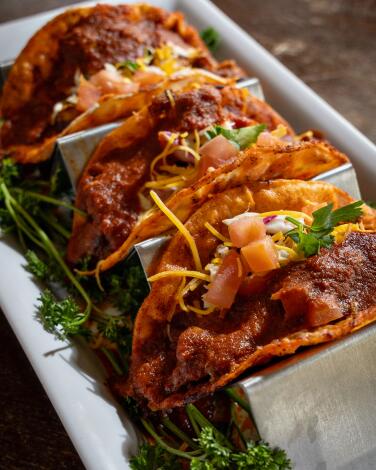
Sky's Gourmet Tacos
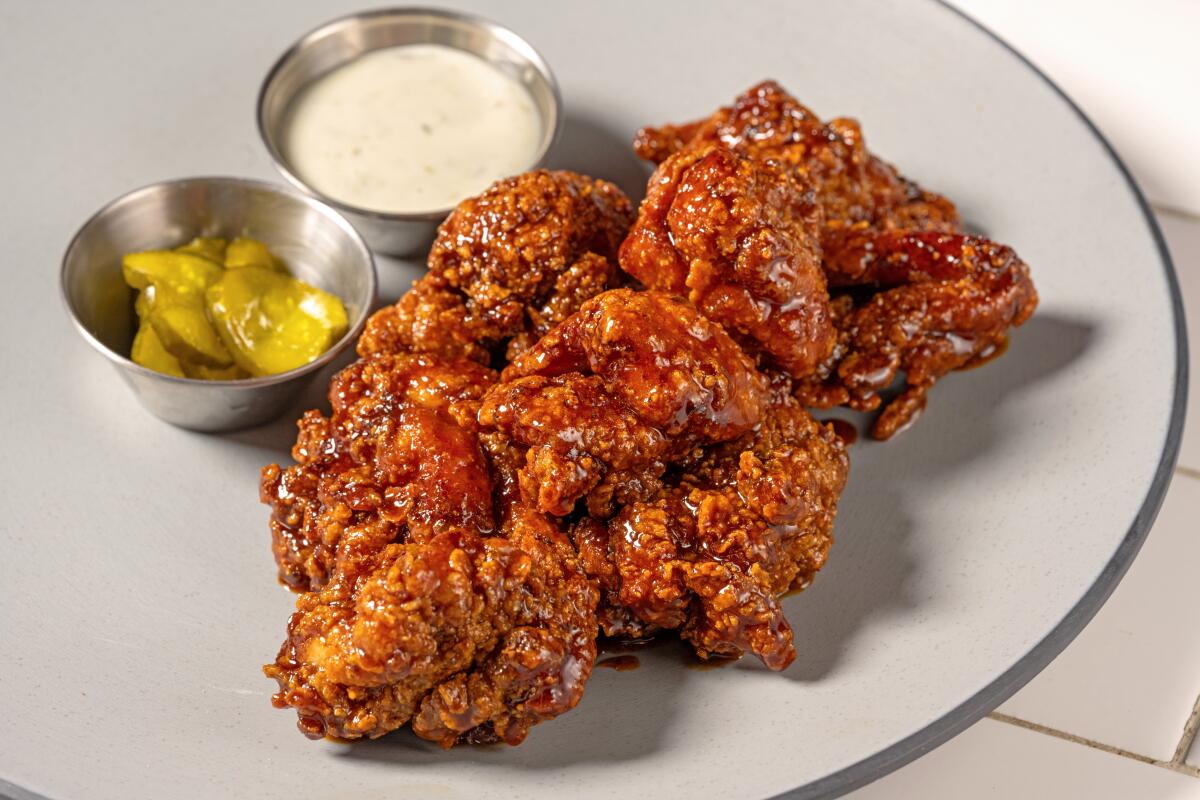
Two Hommés
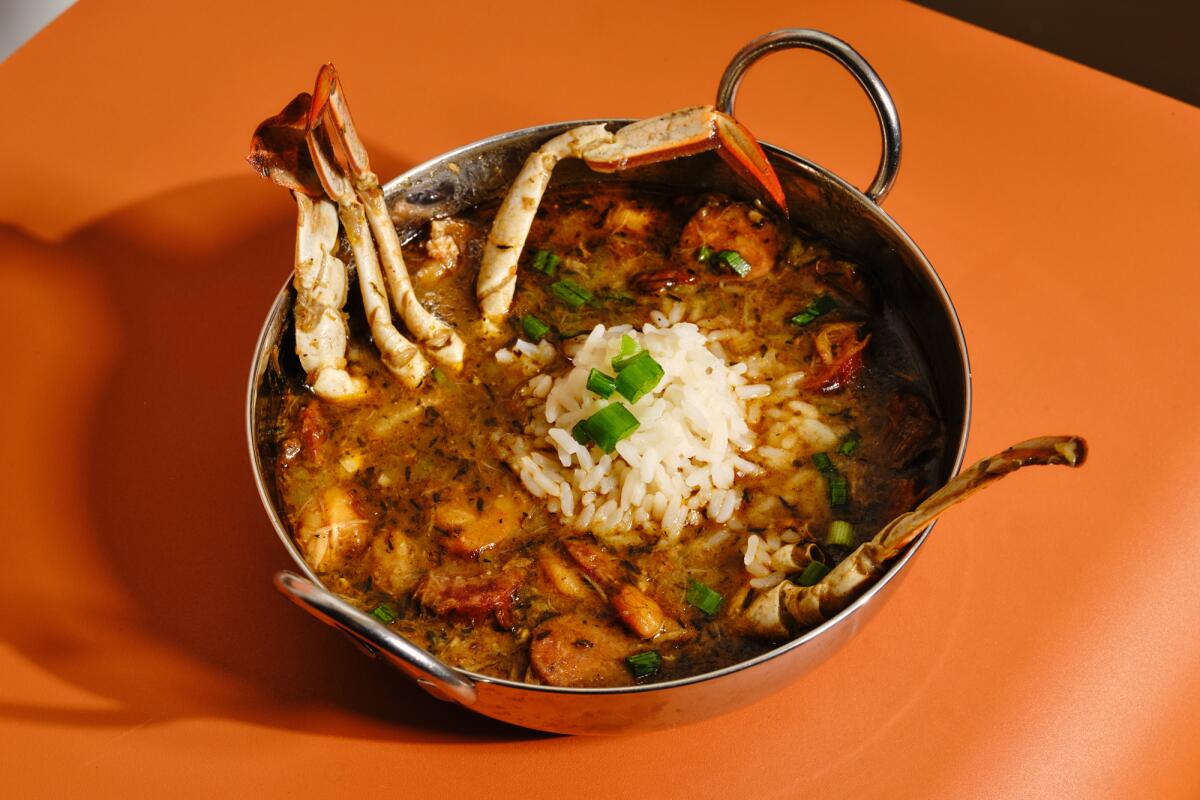
Willie Mae's
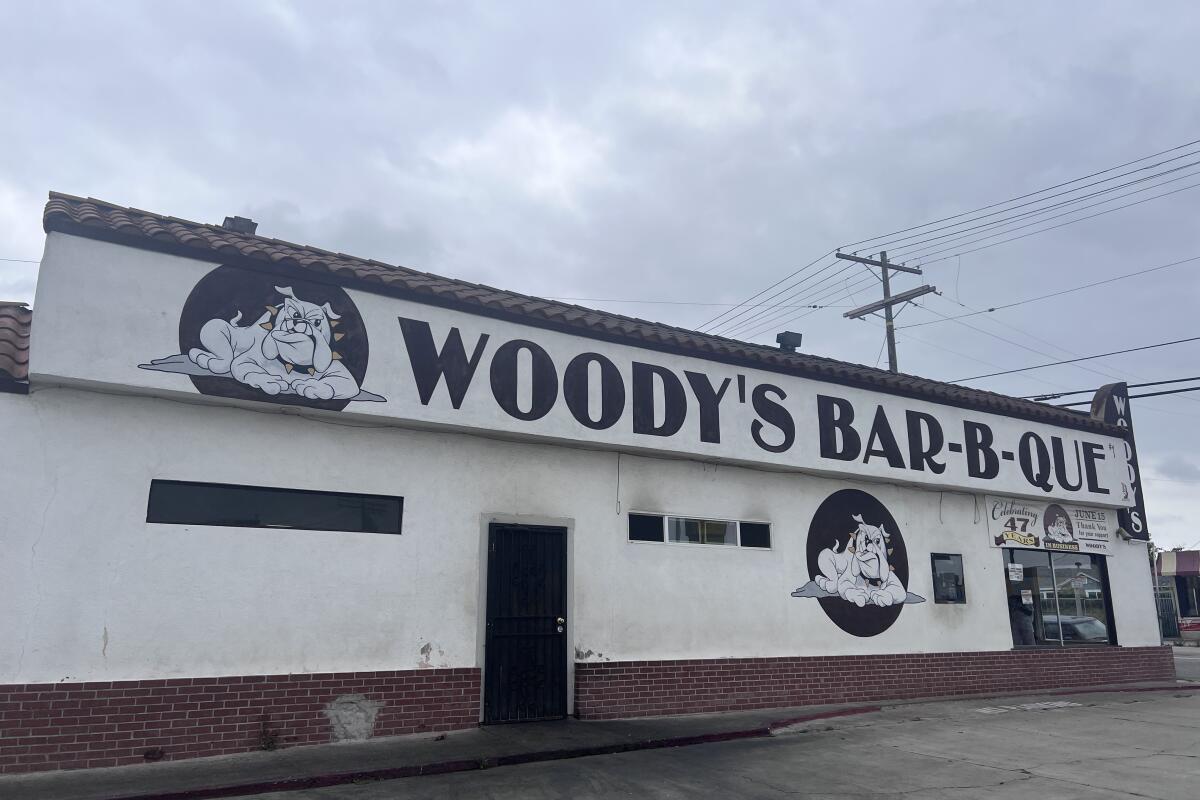
Woody's Bar-B-Que
Eat your way across L.A.
Get our weekly Tasting Notes newsletter for reviews, news and more.
You may occasionally receive promotional content from the Los Angeles Times.







